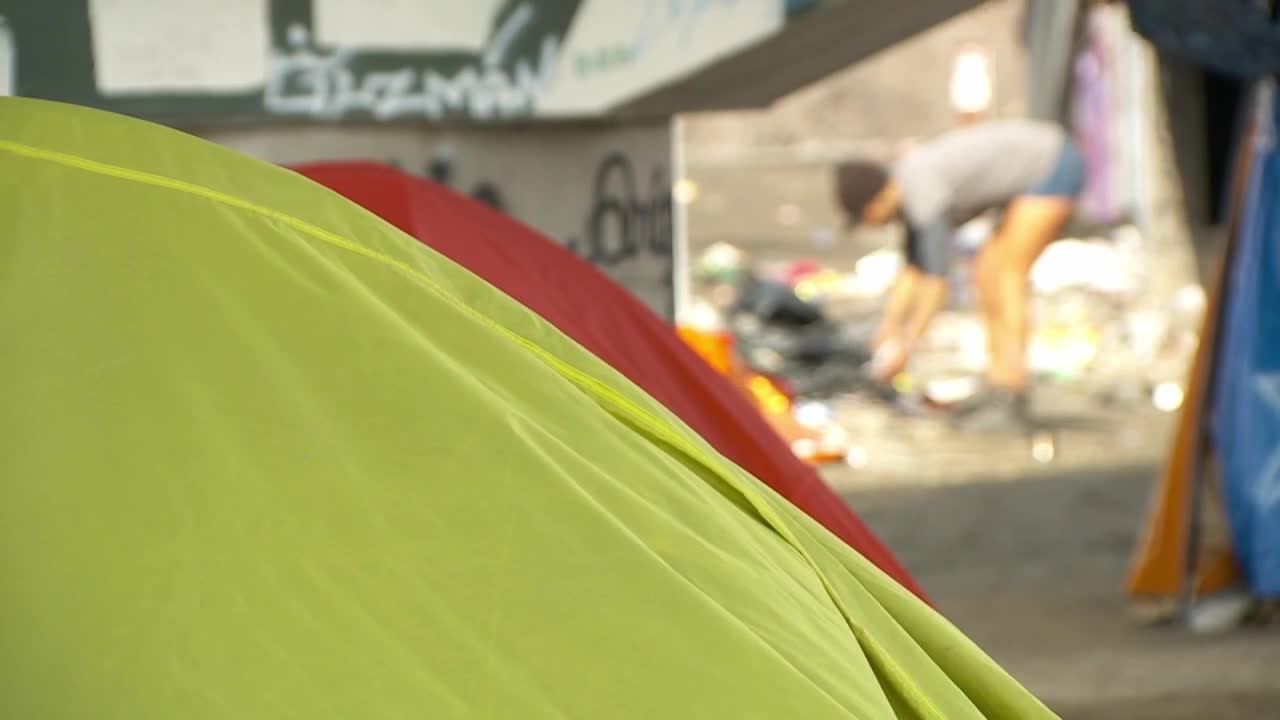SALT LAKE CITY — The Utah Supreme Court has thrown out a lawsuit that contends Salt Lake City has not done enough to address problems related to homelessness.
In a unanimous ruling issued Thursday, the state's top court rejected an appeal by a group of residents who alleged the city was derelict in not enforcing things like anti-camping ordinances. A lower-court judge had already dismissed the lawsuit. The Utah Supreme Court on Thursday upheld that decision.
The Court sided with the city under what's called the "public duty doctrine," that allows governments to perform duties (like enforcement of laws) without fear of civil liability.
"We acknowledge the difficult realities that Residents are experiencing due to the actions unsheltered people are taking on and near their properties. But our sincere sympathy to those difficulties cannot dictate how we apply the law. Both the legislature and this court have made clear that the public duty doctrine exists to preclude claims against government actors for any alleged failure to adequately perform their public duties," Chief Justice Matthew Durrant wrote in the unanimous opinion. "Residents have not shown that the City owed them any unique duty beyond what it owes to all people within City limits."
In a statement to FOX 13 News, Mayor Erin Mendenhall praised the ruling.
“Salt Lake City appreciates the Court’s decision, which reaffirms that complex policy matters are best addressed by locally elected officials and policy experts, not the courts. We recognize the very real impacts chronic homelessness can have on residents, businesses, and unsheltered individuals alike, and we remain committed above all to responding with compassion and accountability.”
Lawyers for some of the plaintiffs expressed disappointment.
"The Supreme Court's ruling that the City may allow encampments on public property and there is nothing residents can do about it makes Utah unique among the fifty states. It overturns a century of public nuisance law. Now it's up to the voters whether they will insist on Salt Lake City fulfilling its basic functions to protect its residents," Ilan Wurman, who argued the case before the Court for the residents, told FOX 13 News in an emailed statement.
But one of the plaintiffs told FOX 13 News he wasn't upset that he lost.
"At this point to me? It doesn’t matter," businessman and former mayoral candidate David Ibarra said in an interview. "The lawsuit was about bringing accountability to the city administration to enforce things that were the law or no camping regulations and to address the humanity of the folks on the street or involved in drugs, mental illness, not getting the assistance needed that was affecting everything from business to neighborhoods. But the climate has changed."
What Ibarra believes changed is Governor Spencer Cox and Republican legislative leaders inserting themselves into the issue in Salt Lake City. Last year, they sent a letter to Mayor Erin Mendenhall demanding more be done to address public safety and homelessness concerns, or else the state would intervene.
Mayor Mendenhall responded with a robust plan designed to address crime and camping problems.
Earlier this month, the mayor and newly-hired Salt Lake City Police Chief Brian Redd held a news conference where they outlined the progress that had been made. Even the leaders on Utah's Capitol Hill seemed impressed with the mayor's plan and its outcomes. But Mayor Mendenhall also said the legislature had failed to adequately fund necessary measures to get people into housing and treatment.
"The mayor has responded," Ibarra said Thursday. "The new chief is absolutely making a difference. So what we wanted was accountability. I look at it like we won."
Read the Utah Supreme Court ruling here:




